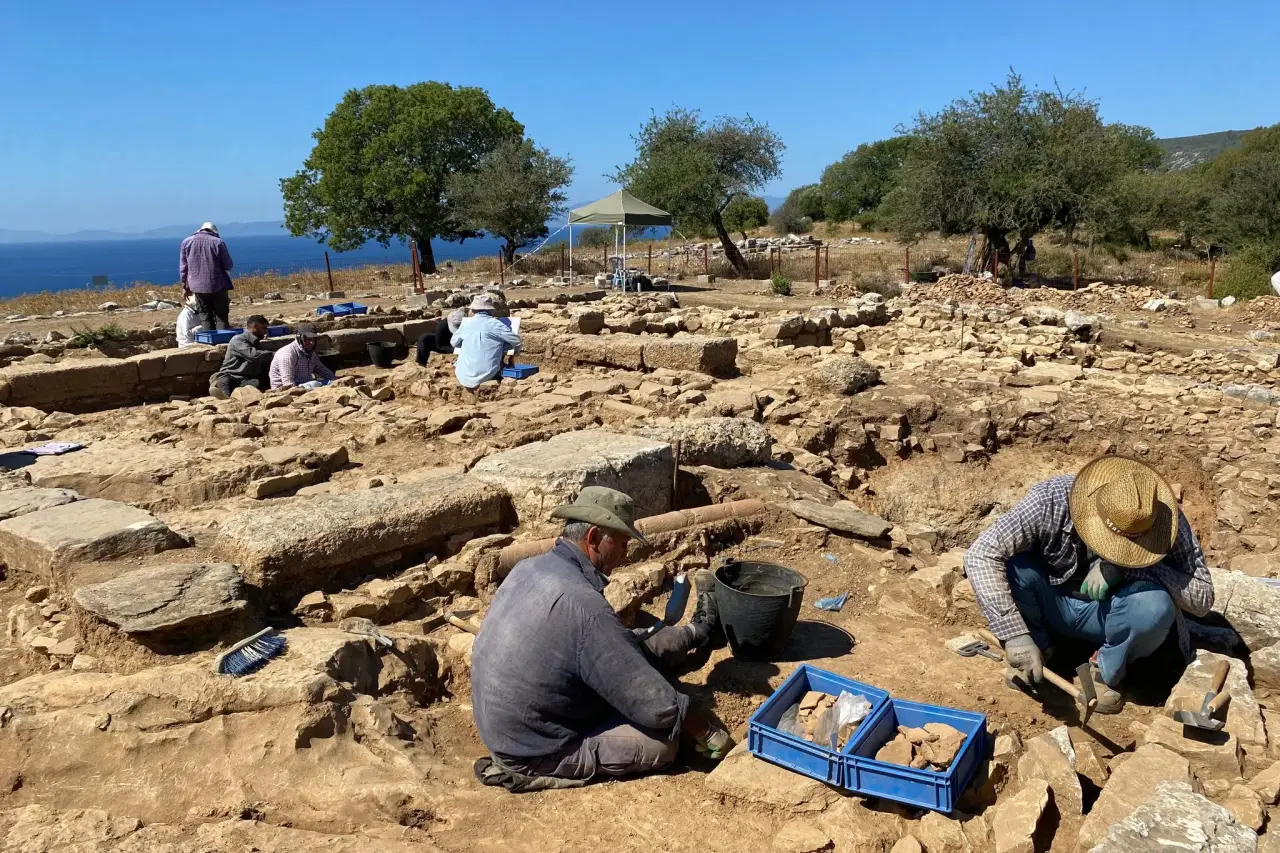Archaeologists have made a remarkable discovery in the ancient ruins of Notion, a city-state located in what is now modern-day Turkey.
Unearthed during recent excavations, the find includes a cache of 2,400-year-old gold coins, shedding new light on the region’s rich historical tapestry. The discovery, detailed in a report by The New York Times, offers a rare glimpse into the life and wealth of ancient civilizations in this area.
A Glimpse into the Past
The gold coins, known as darics, date back to the late fifth century B.C. and were likely buried by a mercenary soldier who never returned to retrieve his wealth. These coins were predominantly used as payment for soldiers of fortune during a time marked by warfare and political unrest in the region. The hoard was discovered in an ancient jug called an olpe, buried beneath the courtyard of a house that dates back to the third century B.C.
Christopher Ratté, an archaeologist at the University of Michigan and the lead researcher on the project, proposed several scenarios to explain the hoard’s presence, suggesting that the soldier may have met with misfortune, preventing him from reclaiming his hidden treasure. “The coins were buried in a corner of the older building,” Dr. Ratté explained. “We weren’t actually looking for a pot of gold.”
The Significance of the Discovery
The discovery of these Persian darics is of immense archaeological importance, offering insights into the economic and military history of the region. These coins are stamped with the image of a Persian king, depicted kneeling in a long tunic, holding a bow in his left hand and a spear in his right. The reverse sides of the coins are blank, save for a punch mark, typical of Persian coinage of the era.
Andrew Meadows, an archaeologist at the University of Oxford who was not involved in the project, underscored the significance of the find. “This is a find of the highest importance,” Meadows stated. “The archaeological context for the hoard will help us fine-tune the chronology of Achaemenid gold coinage.”
The excavation site at Notion spans 80 acres and sits atop a promontory in western Anatolia, a region historically significant as a crossroads between Asia and Europe. Notion was one of several Greek-speaking communities that arose in the area during the early first millennium B.C., possibly due to migration across the Aegean Sea.
A Window into Ancient Conflicts
The period in which the coins were hidden was one of significant turmoil and conflict. The region was a contested frontier zone, caught between the powers of the Greek city-states and the Persian Empire. Notion itself was the site of a major naval battle during the Peloponnesian War, a conflict between Athens and Sparta that shaped much of ancient Greek history.
Dr. Ratté speculated that the gold hoard might be connected to the events of 427 B.C., when an Athenian general attacked and killed a group of pro-Persian mercenaries at Notion, or possibly to the Athenian evacuation of the city some years later. “It is possible it was not associated with either of these dramatic events,” Dr. Ratté said, “but was simply the savings of a veteran mercenary soldier in a time and place when soldiers of fortune could make a lot of money if they were willing to risk their lives for the highest bidder.”
Preserving History for Future Generations
The Notion hoard is currently being stored at the Ephesus Archaeological Museum in Selcuk, Turkey, where it will be studied and preserved. Alongside the gold coins, the dig also uncovered imported Athenian pottery, providing further evidence of the cultural exchanges that took place in this historically rich region.
Dr. Ratté noted that the fact the treasure was never reclaimed suggests a dire fate for its original owner. “No one ever buries a hoard of coins, especially precious metal coins, without intending to retrieve it,” he said. “So only the gravest misfortune can explain the preservation of such a treasure.”
As researchers continue to analyze the findings, the discovery of these ancient coins adds a significant chapter to the history of Anatolia, illustrating the complexities of its past and the enduring legacy of its ancient inhabitants.
Photo credit: Notion Archaeological Project/University of Michigan














